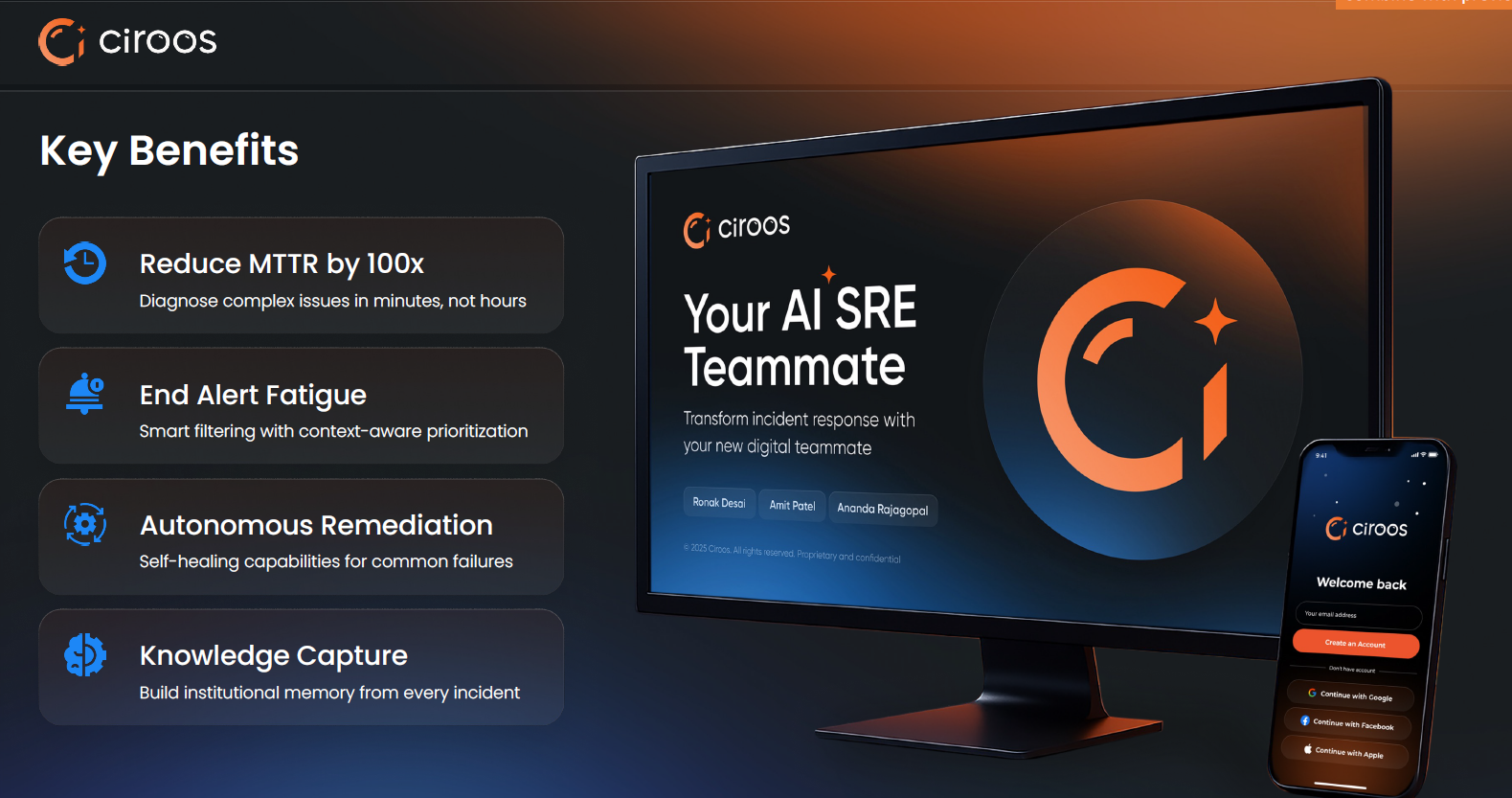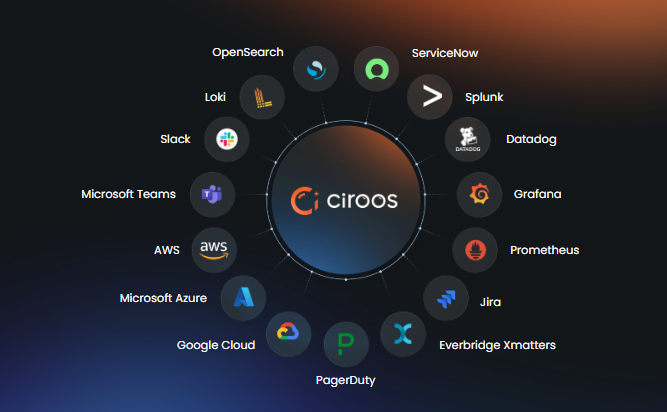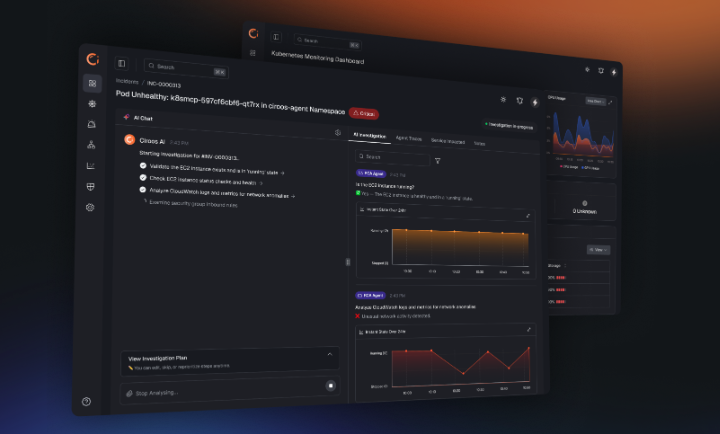Ciroos raises $21 million: Here's a look at the strategy via CEO Ronak Desai
Ciroos raised $21 million to deliver an agentic AI teammate for AI, DevOps and operations teams to automate and cut incident response times by 90%. What's interesting about Ciroos is that it is looking to address gaps in observability and its approach wouldn't have been possible without agentic AI.
The company is looking to solve a big problem for site reliability engineers (SREs)--it's almost impossible to keep up with operations across multiple applications, domains, architectures, and tools, including static runbooks and dashboards. And as enterprises move to AI agents, keeping up with operations is even more challenging. Energy Impact Partners led the funding.
Ronak Desai, co-founder and CEO of Ciroos, said the company built its AI SRE Teammate to "end the toil" for SREs by accelerating root cause identification, automating actions, and giving back time and control to build reliable systems.
Ciroos is betting that it can reimagine observability operations with its AI SRE Teammate to start investigations into anomalies before an expert is paged. Ciroos is using a multi-agent system that correlates data and uses reasoning to identify what is and isn't a problem for operations. According to the company, Ciroos's SRE Teammate supports Modern Context Protocol (MCP) and Agent 2 Agent (A2A) architectures and will integrate with existing observability applications, ticketing systems, collaboration tools, code repositories, and incident response tools.
The company, founded in February by Desai, Amit Patel, and Ananda Rajagopal, has a strong pedigree. Desai was the senior vice president and general manager of Cisco's Observability and AppsDynamics unit and also led Cisco's Cloud Networking Engineering. Patel, CTO of Ciroos, was vice president of engineering at Cisco AppDynamics. Rajagopal, chief product officer at Ciroos, was vice president of product at Cisco AppDynamics and held leadership roles at AWS, Gigamon, and Brocade.
Here are the takeaways from my chat with Desai.
What's the vision for the company? "We're building an AI SRE Teammate to help our operations teams," said Desai. "If you think about modern ID infrastructure, and you have to investigate outages, there are hundreds of experts that need to get involved with lots of tools and dashboards. It takes, on average, two hours to resolve. Ciroos wants to end all of that and give the time back."
He added that the goal is to reduce investigation time to minutes with agentic AI across multiple domains, a vast amount of data and take action with human-like reasoning.
Start with solving a problem. Desai saw the SRE challenges upfront at Cisco's data center group. "I would hear from enterprise customers saying they have lots of tools and in some cases hundreds of tools, not counting security," said Desai. "There's a siloed way of looking at tools and dashboards without correlated insights. If you think about what's happening with AI coding tools and developer productivity, the same thing can happen for SREs."
Once reasoning models became popular, it was clear that Ciroos could solve for cross-domain correlation problems. "The ability to solve that problem with the technology it was a perfect combination for us to get started," said Desai. "What we're doing wouldn't have been possible just using early large language models of 2023 and 2024."

Where Ciroos fits. Desai said its main competition is manual labor, more than existing observability tools. "We do not compete with any of the observability tools," said Desai. "We are competing with manual labor and the toil SREs have. They are looking at hundreds of dashboards and trying to figure everything out and the cognitive load is too much for humans. We're going after that problem and still keeping humans in the loop."
Desai said the Ciroos can bring SREs hundreds of experts to provide insights ready for them when they are woken up at 2 am. Ciroos's SRE Teammate is designed to automate and speed up investigations and proactively investigate issues. "We want to give SREs all the information they need, the root cause analysis and implement remediation," said Desai.
Integrations. Desai said Ciroos SRE Teammate integrates the ecosystem of tools across observability, incident management and ticketing to extract the right set of information from logs, metrics, tracing, and events. "When your human SRE expert gets on the call to investigate an incident, they’re looking at not only historical data but all the signals connected to the live system," said Desai. "We're putting all of that information into a reasoning model that can narrow down problems and determine what's critical."

ROI. Desai quipped that sleep is the best measure of uptime for SREs. "We're really looking to avoid that manual toil and the tasks which we do not want our human SREs to do," said Desai. Cutting down on narrowing down the problem, war room calls, dashboard diving, and time for investigations is the real ROI. The goal is to cut long investigation windows down to minutes.
Extensibility. Ciroos will be built to leverage whatever new advances in models. Cirooswill also be extensible as a way to adapt to new technologies. "Out of the box, we built into agent-to-agent capability where we can hook it into an agent that the customer has deployed or developed on their own," said Desai. "We are working with open and extensible ecosystems so we can work with what the customer's environment is."
What's next? Desai said Ciroos is building out its product for a launch soon and working on its agents with customers as well as inviting other early adopters. The company is also building out multi-domain knowledge for the platform. "The goal is to reduce human toil from SREs so that we can give them the sleep and time back and build a scalable system," said Desai. "We're focusing on the problems that matter to enterprises."


